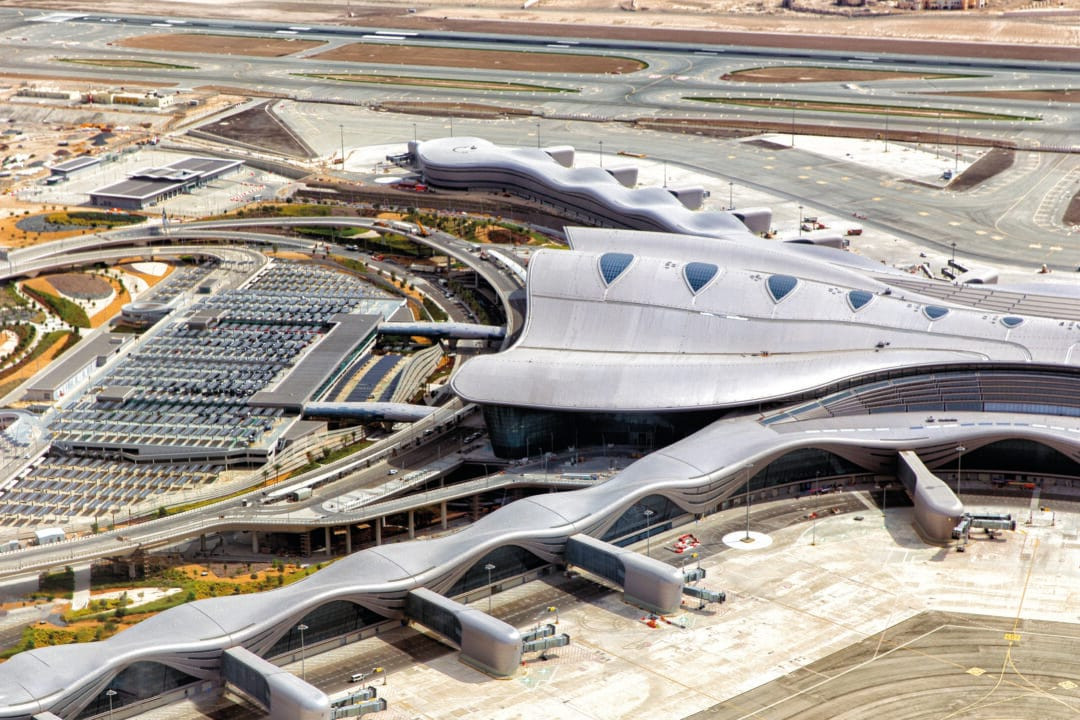
HThe Middle East also strengthened its place as the global charging power? Backed by coordinated investment strategies led by the state, the development of modern infrastructure, and the expansion of global communication, countries like the United Arab Emirates, Qatar and Saudi Arabia show a “way” for other regions in terms of long -term flight strategy, especially when it comes to air charging.
“What you see in the Middle East, I have likened to 20 years ago, is a completely different approach to flying more than it is in Europe,” said Willie Walsh, Director General of the International Air Transport Association (IATA. “You have a consensus between governments, airports and airlines, and they invest in passenger facilities, especially shipping facilities.”
Dubai has become a case of a successful economic development. Walsh recalls that the city predicts that it would overcome Heathrow Airport in London as the best international center in the world – expectations made in 2014: “I think the Middle East is the place where the future lies. I really like what they do, because you see people who realize the value offered by flying.”
Investment for frequency
In contrast to Europe it cannot be more clear. While the Gulf states are advancing with new runways and shipping corridors designed for this purpose, Walsh sees that Europe is closed in a cycle of organizational paralysis and costly infrastructure aspirations.
He said: “You do not see new runways built in Europe. Do not see this consensus between governments, airports and airlines in the same way that you see here.” “What I witness in Dubai is a coordinated approach to increasing the benefit that flying gives, so you have a consensus between governments, airports and airlines, and they are investing in the facilities. I have obtained new runways built for the future.”
Using Heathrow as a major example, Walsh wondered about the logical economic basis behind the alleged third runway.
“Even if you ignore environmental problems … the cost of building a third runway in the United Kingdom, especially if you leave Heathrow to build them – you know … at that time [in 2014–15]The estimated cost of the project was 18.6 billion pounds. They were proposing to spend 800 million pounds to develop a parking lot, and therefore the incentive to Heathrow is completely different from the motivation you will see here in the Middle East. For this reason you have silly costs in terms of expansion in Heathrow, and the absurd increases corresponding to the fees that airlines will face to work in Heathrow if it is allowed to move forward.
“I can understand why the UK government supports it, because they are getting a major project for infrastructure that they do not have to spend on, but I do not see that happening.”
Power transformations
Walsh suggested that the importance of Europe decreased, as a transit center is exacerbated due to its high operational costs and limited growth prospects. Transfer of traffic – which historically assisted airports such as Heathrow in maintaining contact – is heading towards the Middle East, as international airlines such as the Emirates and Qatari air passes flourished.
He said: “It is imperative that the future rest, especially with regard to shipping, in the Middle East and Asia, is much more than where it was traditional in Europe and the United States.” “The axis gives you access Direct contact for your economy … because you can complete the local demand with the movement of transport. “
“They managed to create a global center because of the global communication provided by Dubai, and because of interest in Dubai events such as the global freight symposium. More than 1,800 people come here, not only because of the goods. People love to travel here, so I think European boats will remain important on a global scale, but their dependence on the transition of highlands all the time.”
A future look
While Walsh acknowledged that European and American centers are still playing major roles in global aviation-because of the origins of the original and strong residence-it was frank about their future impact on long transportation.
He said of European airports: “Dependence on transportation is not difficult.” “But when you have the most expensive axis in the world, it serves a transportation market that is usually low … meaningless.”
In Asia, cities like Hong Kong and emerging centers in China are escalating, complicating Europe’s ability to restore the lost land. The closure of the airspace due to the Russia -Ukraine war, as well as delay in delivering aircraft, has made Asia and Robe more expensive and more complicated, leading to increased competitiveness.
“Since you have to travel to Asia, it takes a much longer way today, the costs have increased significantly. You cannot compensate for the prices.”
Even if the Russian airspace has been reopened, it reduced its immediate effect: “It will be positive … but I do not think that there are many airlines that suffer from the reopening of the Russian airspace.”